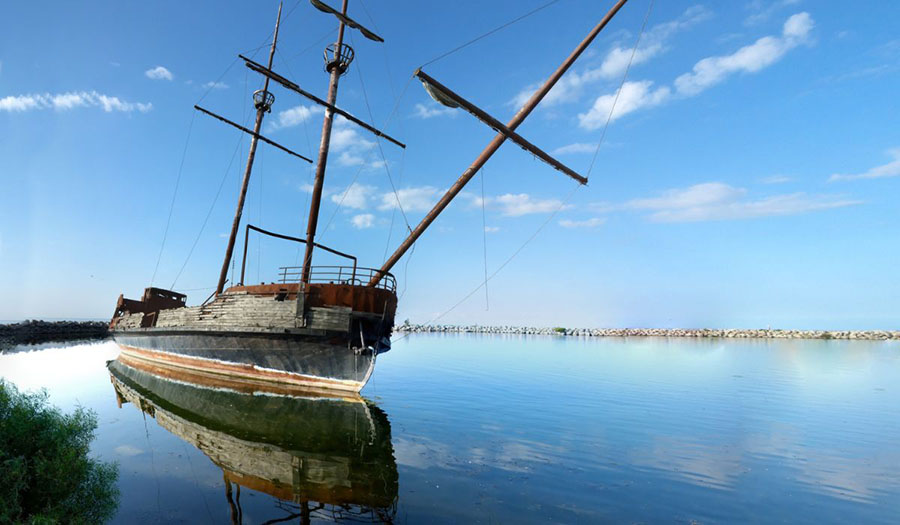The last three years have changed the way Ontarians travel, both internationally and domestically. We sat down with experts in the travel space to learn how.
Close your eyes and picture your dream summer vacation. Are you relaxing with a Mai Tai on a white sand beach in Cuba or the Dominican Republic?
Perhaps an all-inclusive isn’t your speed. Maybe you’re looking for adventures closer to home, like sampling the latest vintage from a family-owned winery in the Niagara benchlands or discovering traditional cheese-making at a homestead in Oxford County.
Ask travel experts, and they’ll tell you that the COVID-19 pandemic changed how Ontarians travel.
Up until last year, people were still making decisions about travel based on public health advisories and the risk of lockdowns abroad. They were picking domestic trips over international ones. When borders reopened, they were choosing to travel with their loved ones versus alone. Niagara travel agent Nicole Mathias says that post-pandemic, she’s seen a rise in requests for multi-generational trips and small group travel, as well as travel for special occasions—birthdays, anniversaries, and other life milestones—to the international destinations she works with.

Niagara Travel Agent
“People want to travel with family, friends, neighbors,” says Mathias.
Not only did the pandemic encourage Ontarians to travel closer to home over the last few years—providing the province’s tourism industry with a lifeline, says Chris Bloore, President and CEO of the Tourism Industry Association of Ontario, or TIAO—but it made them question why and how they were choosing to travel. It fostered a heightened sense of responsibility among travelers.

Tourism Industry Association of Ontario
“Whether it's in the actual accommodation that people are seeking out, whether it's in the day trips, […] people are looking to do things that other people haven't done, and they're looking for more authentic, you know, cultural experiences,” says Bloore.
Today’s travel trends suggest that travellers, he adds, care about the impact they have on the destinations and communities they visit. Indigenous tourism, for example, was one of the fastest growing parts of Ontario’s tourism industry before the pandemic and has started to rebound, says Bloore. Pop-up restaurants and out-of-the-ordinary culinary experiences are high in demand. Nature- and resource-based experiences like hikes, eco-tours, and adventure sports are also having a moment in the travel space.
Many travellers, Bloore says, are looking for off-the-beaten-path experiences, but specifically ones that are in line with regenerative tourism—a sustainable way of travelling and discovering new places. The main goal of regenerative tourism is to leave a destination or community in a better condition than you found it. That might mean choosing a tour operator who enforces positive environmental practices in their business, like composting or harvesting renewable energy. Or, it might mean supporting vendors who pay their workers good wages and feel a sense of social responsibility to their community. There is a moral fibre woven into regenerative tourism that in years past was easier for travellers to overlook.
“I think we are seeing a shift in attitudes, of people trying to find something that is more authentic and more reflective of that community, rather than perhaps that package that has been on offer for the last 20 or 30 years,” says Bloore. “One trend we are seeing is that those people who might have decided to go to Toronto, Montreal, or Vancouver for their sort of big holiday or big vacation, we're seeing that they're looking for different destinations, maybe cheaper destinations, maybe ones that they haven't been to before.”
Away from the roar of the region’s most popular tourist attraction, Niagara Falls, the Town of Lincoln offers its visitors a more intimate and savory travel experience. Here, the quieter little cousins of the Falls, like Louth Falls and Rockway Falls, see far less visitors. So do their craft wineries, cider houses, and craft breweries, what Britnie Bazylewski—Tourism Coordinator for the Town of Lincoln—calls “the jewel in the crown” of the area’s tourism offerings.

The Town of Lincoln
“We kind of pride ourselves on being the home of wanderers being welcomed,” says Bazylewski. “So, you know, every serendipitous discovery, every wrong turn, you know, every road leads you to something new and undiscovered.”
Travellers from the Greater Toronto Area make up the largest share of Lincoln’s tourism market, and to a lesser degree, areas like Kitchener, Waterloo, and Cambridge. Pre-pandemic, American visitors travelling by land from south of the border, particularly western New York and Michigan, were an important market.
Today, the Town markets the area to travellers as the Niagara benchlands, a place for relishing in farm-to-table dining experiences, enjoying fine wine and craft beverages, and exploring the quieter side of the escarpment. Travellers, for example, can sign up for farm-to-fork style cooking classes at The Good Earth Food & Wine Co., where they use local ingredients to whip up delicious plates they pair with their proprietary wines.
“It’s a real holistic kind of environment where you can hit the farm to grab ingredients, visit a local bakery to grab bread, hit the local winery and grab a bottle of wine, you name it,” says Bazylewski. “You can literally collect everything you would need [to create] a multi-course, beautifully-appointed menu by just driving around all of the wrong turns here in Lincoln.”
Internationally, Mathias says she’s seen less of an appetite for off-the-beaten path travel—in fact, many of her clients want to explore places they’ve heard rave reviews of from their friends, neighbours, or family members. Impact, however—and particularly, how to have a good one on the destination you’re visiting—is becoming increasingly commonplace in agents’ conversations with clients and suppliers.
“It’s definitely more of a concern [now] than it ever was,” says Mathias, who adds that her clients tend to want to support locally-owned businesses for things like excursions. “They want to make sure that the money's going to locals.”
Here in Canada, Bloore hopes that Ontarians will continue to have an appetite for domestic travel as the world’s borders become once again more fluid. Tourism, particularly regenerative tourism, around the province provides support for communities with a lot to offer, but little clout for it. There’s plenty to see, he adds, in our own back yard.
“Perhaps we're seeing that the pandemic opened people's eyes to what was available in Ontario, and that can only be a positive thing.”
Thank you to our expert contributors.
Nicole Mathias, Niagara Travel Agent
Nicole is an expert travel agent with over 15 years of experience in the industry. Her agency, Niagara Travel Agent specializes in tailored boutique travel as well as family and multigenerational vacations. She loves travelling with her family, discovering the best gluten-free food worldwide and flying business class.
Christopher Bloore, President and CEO of TIAO
Christopher has played a key role in leading the industry's COVID-19 response. With a background in public service and collaborative leadership, he united organizations for legislative support. Previously elected in local government, he relocated to Toronto in 2019.
Britnie Bazylewski, Tourism Coordinator at the Town of Lincoln
Since joining the Town of Lincoln in 2020, Britnie Bazylewski has guided the municipality’s Tourism Strategy and Action Plan to set Lincoln, and the newly realized Niagara Benchlands on a path toward hurried economic recovery and sustainably minded destination growth.









